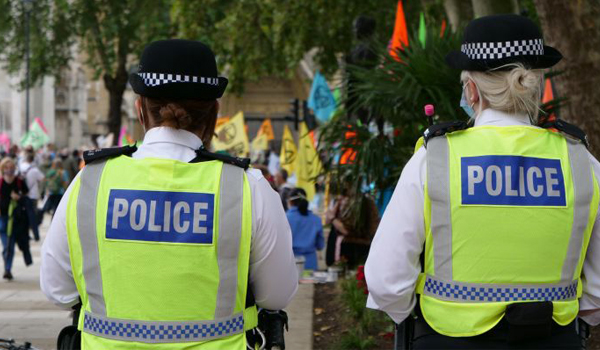Public wants stricter policing of coronavirus restrictions
The public believes the “kid gloves should be put away” when policing the pandemic, with stronger enforcement rather than engagement, according to new research.
While there was an empathy towards the police and the “impossible job” of policing coronavirus restrictions, many felt officers had been “too lenient” with rule-breakers.
The team of researchers from the University of Portsmouth found there was a widespread belief among the general public that compliance with lockdown restrictions has been “very poor” and that police should be stricter.
The study also highlighted a general feeling that increased police visibility was key to policing rule-breakers.
The researchers, led by Dr Sarah Charman, Reader in Criminology, conducted a public survey during the lockdown periods between July and September 2020.
The survey had four open-ended questions, with respondents asked to describe their interactions with the police during lockdown and how they perceived they were managing to ensure overall compliance.
Dr Charman said the responses suggest the public has shifted its thinking towards a desire for stricter forms of policing:
- 31 per cent of respondents question how fairly the police have applied the restrictions, believing that the police are being too lax on rule-breakers in the main;
- 25 per cent of respondents want to see more police patrolling the streets – visibility is seen as key to effective policing of the Covid-19 restrictions; and
- 20 per cent of respondents believe that government guidelines on restrictions have been unclear, which has negatively affected their perceptions of the police response.
The study also found that respondents reported good individual compliance with restrictions, but there is widespread belief that the compliance levels of the general public are very poor.
Dr Charman said: “Although the disparity between the public’s conception of their own compliance with lockdown restrictions and that of the wider public is noteworthy in itself, the impact this sentiment is having on the public’s perceptions of the use of police powers during the pandemic has the potential to change the policing landscape forever.”
The open-ended responses also hinted that the lack of police visibility was an area of concern, with a quarter of comments requesting more police patrols in public places. The study showed respondents felt that visibility was key to policing rule breakers, where the police “need to be visible and accessible to control those who ignore the rules”.
Dr Aram Ghaemmaghami, Research Associate at the University of Portsmouth, said: “It is possible that this need for a heightened police presence is motivated by the general anxiety created by the pandemic. Many respondents viewed a visual police presence as reassuring, with statements such as ‘visibility leads to feelings of security’ being commonly made by respondents.
“Eleven per cent of open-ended responses directly referenced their anxiety about the ability of the public to keep to the restrictions and how they viewed the police’s role in managing that – with respondents reporting that they felt the police were being ‘too lenient’ when policing restrictions.”
Lockdown fatigue was cited as another possible reason the public desire stronger policing, where they have become “tired of having to self-police”.
There were hundreds of comments made that called for much stricter enforcement – where “the kid gloves should be put away and boots should be used.”
Dr Ghaemmaghami explained: “As alarming as some of these statements may seem in isolation, it is important to note that 20 per cent of responses did illustrate an empathy towards the police and the ‘impossible job’ they have been given in terms of policing the pandemic, illustrating an understanding that the ‘guidelines around enforcing lockdown were not clear to the police’.
“This would suggest that the police still possess the cultural capital needed to pursue more traditional methods of policing that focus on de-escalation, such as the use of the four Es – Engage, Explain, Encourage, Enforce.”
Dr Charman added: “It appears that the pandemic has changed the way the public view the application of policing powers, requesting stronger enforcement instead of engagement strategies.
“As we tentatively step out of the latest lockdown and the vaccination programme continues to be rolled out, we need to gain a better understanding of the longer-term implications caused by the pandemic and the rapidly changing policy environment it has created.”
Up to June 20, police in England and Wales had processed a total of 117,213 fixed penalty notices for breaches of coronavirus restrictions.
However, the numbers are now starting to fall “considerably” as lockdown restrictions are eased.
The latest provisional figures released by the National Police Chiefs’ Council (NPCC) show that 2,010 fines were processed in the latest reporting period.
The total processed in England is now 105,329 and 11,884 in Wales.
NPCC chair Martin Hewitt said: “Once again, the number of fines processed in the latest reporting period has fallen considerably, as we continue to make good progress and edge closer to the end of lockdown.
“Despite the slight easing of the rules relating to some activities, such as weddings, commemorative events and care home visits, we mustn’t forget that there are still some restrictions in place.
“Our officers will continue to carry out patrols and will engage with the public to keep explaining the restrictions which remain in place.”


